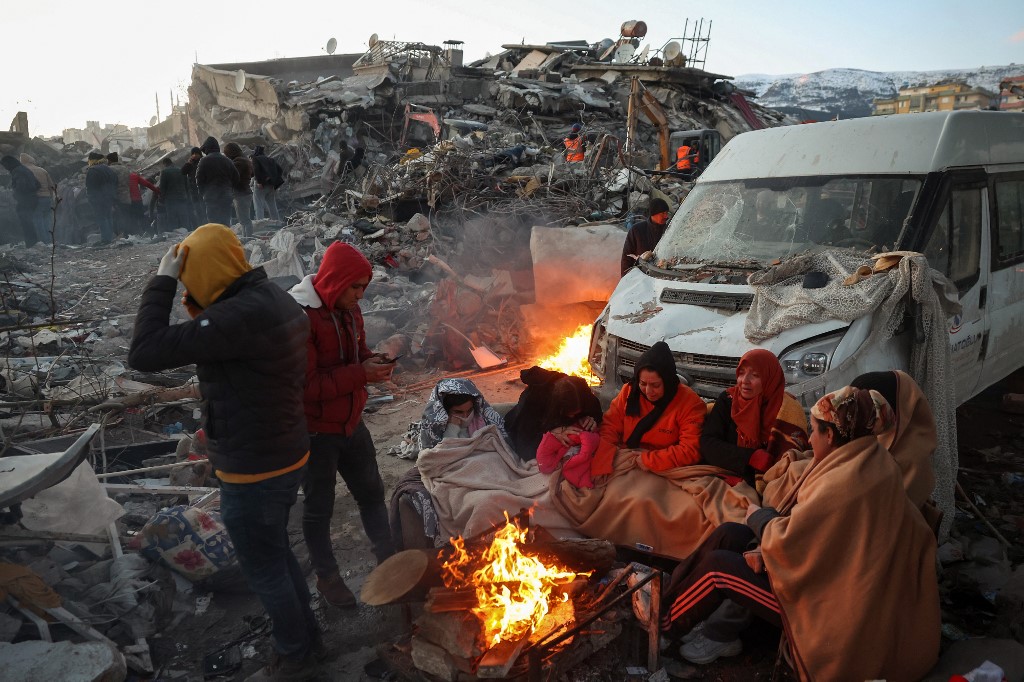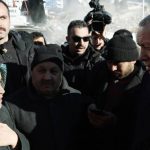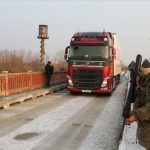The WHO warned Wednesday of a secondary health crisis threatening to strike Turkey and Syria in the aftermath of the devastating earthquake, which could be worse than the quake itself, Agence France-Presse reported.
Monday’s 7.8-magnitude tremor has killed more than 11,700 people in Turkey and Syria, flattening thousands of buildings and trapping an unknown number of people.
The World Health Organization said there was a race against time to save lives — and then ensure survivors stay alive in the dire circumstances.
Robert Holden, the WHO’s earthquake response incident manager, said the immediate focus was on saving lives but insisted it was “imperative to make sure that those who survived the initial disaster… continue to survive”.
“We’ve got a lot of people who have survived now out in the open, in worsening and horrific conditions,” he explained, with disrupted access to water, fuel, electricity and communications.
“We are in real danger of seeing a secondary disaster which may cause harm to more people than the initial disaster if we don’t move with the same pace and intensity as we are doing on the search and rescue,” he told a press conference in Geneva.
“This is no easy task… The scale of the operation is massive.”
Medical aid flights
A winter storm has compounded the misery by rendering many roads — some of them damaged by the quake — almost impassable.
Adelheid Marschang, the WHO’s senior emergency officer, explained the risks that survivors are were now likely to face.
She said there was a “clear concern” that “underlying health risks will likely be exacerbated” by the aftermath.
In Syria, ravaged by years of civil war, these would include diarrhea, cholera, respiratory illnesses, leishmaniasis, disability and secondary wound infections.
The quake will also likely worsen chronic conditions and non-communicable diseases due to the disruption to healthcare, with such capacities already “gravely affected” by the civil war.
WHO chief Tedros Adhanom Ghebreyesus anticipated that the death toll would keep climbing, saying: “With the weather conditions and ongoing aftershocks, we’re in a race against time to save lives.”
“People need shelter, food, clean water and medical care, for injuries resulting from the earthquake, but also for other health needs.”
He said one flight of medical aid was heading for İstanbul from the WHO’s logistics hub in Dubai, while another bound for Damascus is preparing to depart, with another flight to the Syrian capital planned.
Tedros said 77 national and 13 international emergency medical teams were deployed to the affected areas.
He warned that the situation in Syria was compounded by outbreaks of measles and cholera. Since late August, Syria has reported about 85,000 cholera cases, he said.
WHO emergencies director Michael Ryan added that there would need to be long-lasting mental health support to cope with the ongoing trauma.
“It’s a huge issue,” he said.
“The psychological stress that communities have gone through in the last 60 hours will reverberate for 60 years.”



